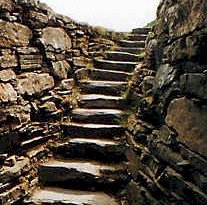Information Literacy Instruction & Effective Research

Information Literacy = A relatively new term, information literacy refers to the skill level of a person regarding information; skill in finding the information one needs, usually requiring knowledge of library resources, computer search tools, and research techniques. The term can often be confused with computer literacy; however it is a much more extensive term.
An information literate person can:
* Identify and retrieve information in print form, (books, serials, reference texts)
* Analyze information for its relevance, timeliness, accuracy and suitability of format
* Synthesize the information and present it
Modern library instruction emphasizes search and retrieval techniques as well as evaluation skills such as these.
Library Instruction = (also called Bibliographic instruction) is the process of teaching users how to find information in the library and on the Web. It is closely allied to the field of information literacy.
Instructional services provided by an instruction librarian to a group of users designed to teach them how to locate the information they need quickly and effectively. Library instruction usually covers the library's system of organization, the structure of the literature of the field or topic, research methodology appropriate to the discipline, and increasingly involves hands-on practice using computerized search tools.
Library Instruction Wiki
LibraryInstruction.com: The Librarian's Weapon of Mass Instruction
Information Literacy Articles at LibraryInstruction.com
Research = Systematic, intensive, patient study and investigation in some field of knowledge, usually employing the techniques of hypothesis and experiment, whose purpose is to reveal new facts, theories, or principles.
Web Site Evaluation
Why students need information literacy skills
Information literacy is more than personal processes, skills and lifelong learning. It is also about using information for social responsibility.
Information literate people:
* "engage in independent learning through constructing new meaning, understanding and knowledge;
* derive satisfaction and personal fulfilment from using information wisely;
* individually and collectively search for and use information for decision making and problem solving in order to address personal, professional and societal issues; and
* demonstrate social responsibility through a commitment to lifelong learning and community participation."
Australian and New Zealand Institute for Information Literacy and Council of Australian University Librarians (2003). Australian and New Zealand information literacy framework. Principles, standards and practice . Adelaide, Australian and New Zealand Institute for Information Literacy.
Boolean Searching
Internet Public Library for Teens -- Teen Space: A+ Research & Writing for High School and College Students
Evaluating Search Tools
Elements of Website Evaluation
Worksheet for Evaluating Websites
Evaluating Websites "Tour"
Learning Information Literacy Online
Your research strategy: How to select a good research topic
Library research tutorials
Technology & Learning: Copyright and FairUse Guidelines for Teachers
Good “quick reference” for copyright and fair use guidelines in chart form.
Ethics 101: Cheating, Plagiarism, Site Evaluation, Copyright and Your Students
Finding Online Forums
Online Catalog Exercise
CyberSmart: Meeting the Needs of Students, Teachers and Schools by:
* enabling schools to successfully integrate technology into the core curricula;
* addressing the social, legal and ethical issues associated with technology use;
* supporting information and technology literacy;
* helping busy teachers make student technology use more effective;
* teaching the ground rules for online behaviors that are acceptable, appropriate and effective;
* and, involving families.
Basic Steps in the Research Process
Netiquette
The Final Hurdle?
By Ann Jason Kenney, Illustrations by David Brion -- 3/1/2006 -- School Library Journal.com
A new test may finally bring information literacy the recognition it deserves
"The bottom line is that school librarians have a huge role to play in ensuring that students know how to properly use communication tools and digital technology. 'This includes the ability to use technology as a tool to research, organize, evaluate, and communicate information, and the ethical and legal issues surrounding the access and use of information,' says ETS.
The core test, administered online in a proctored lab or classroom, uses real-time, scenario-based tasks such as obtaining information from a database, creating a spreadsheet, and writing a concise e-mail message based on research findings. Tasks are designed to measure technical and cognitive skills.
An assessment of the ability to collect or retrieve information in a digital environment may involve searching a database, browsing hyperlinks, or locating information through online help. To determine proficiency in evaluating information, a student may, for instance, be asked to find a database that best addresses a research question, determine if a Web site is sufficient to complete a given task, or rank sites according to whether they meet particular criteria.
How well are we teaching technology skills and the critical thinking proficiencies to use them optimally? What new skills do we need to be teaching? Are the research and technology skills that we teach in one grade successfully reinforced and maintained in others? How familiar are our students with the ethical and legal issues embedded in the use of information?
Librarians have long understood the importance of knowing how to properly locate, use, and evaluate information. If information literacy is as important to school librarians as we say it is, let’s not be left behind. Let’s seize this test as an opportunity to demonstrate our importance as instructors of information literacy and the value these skills have in our students’ lives." (Kenney, 2006).
The research process involves a series of strategic steps and guidelines for ensuring and maximizing the quality, objectivity, utility, and integrity of information analysis and use. When these steps are understood and followed, the process facilitates reaching the goal of information discovery, retrieval, organization, utility, and sharing.




0 Comments:
Post a Comment
<< Home